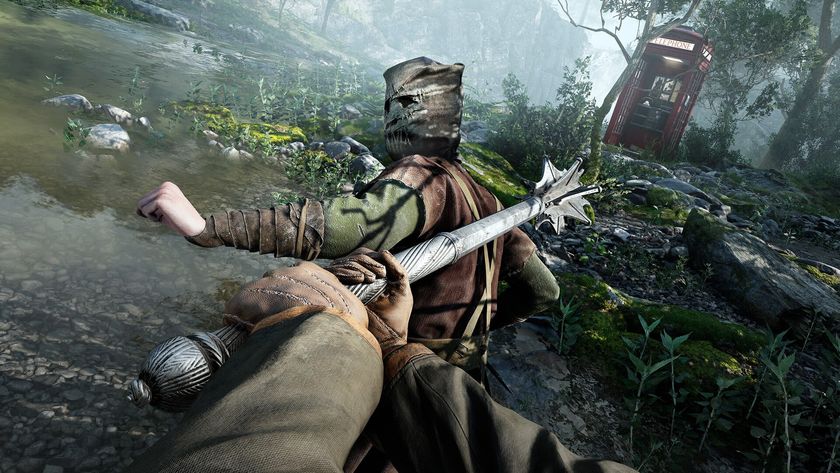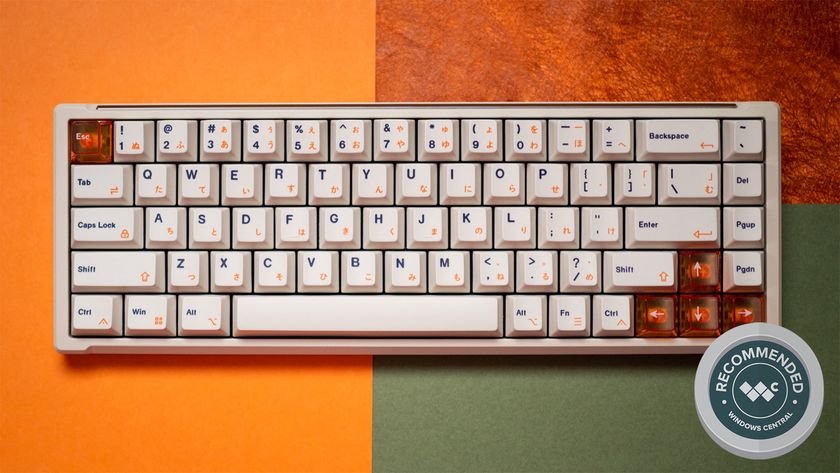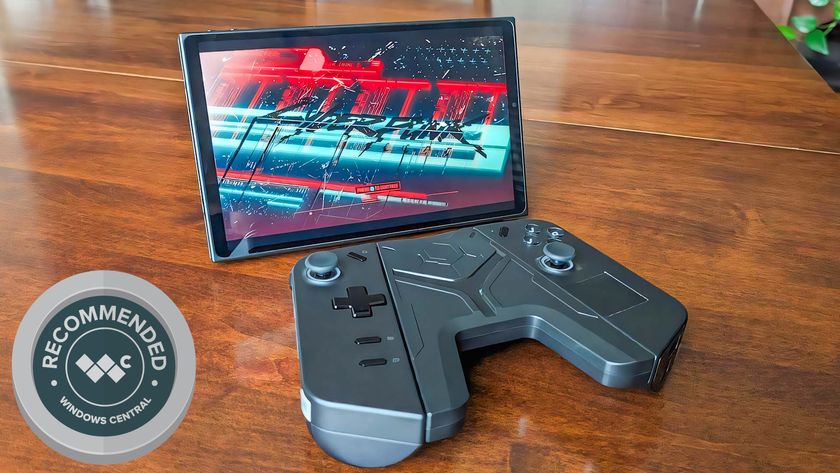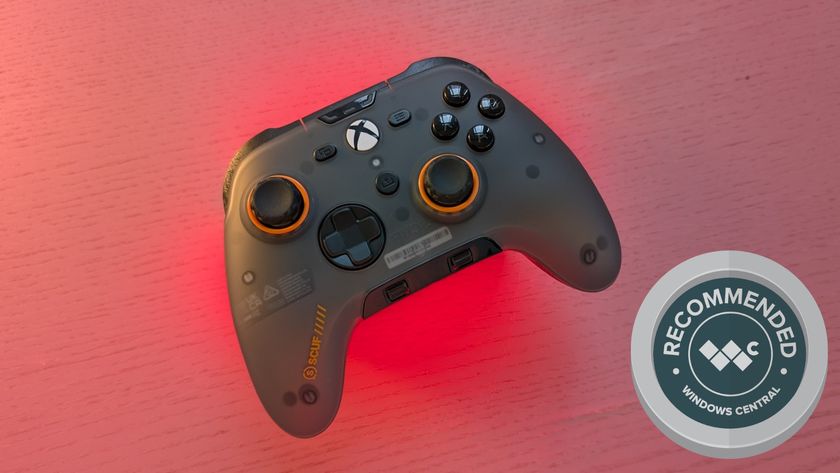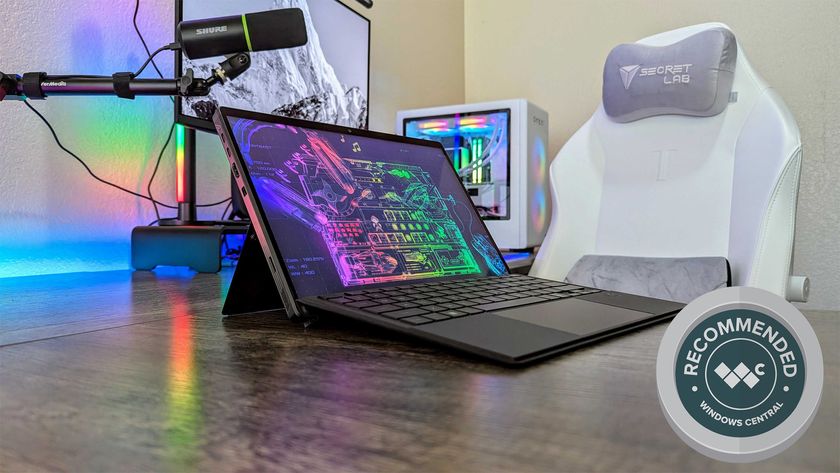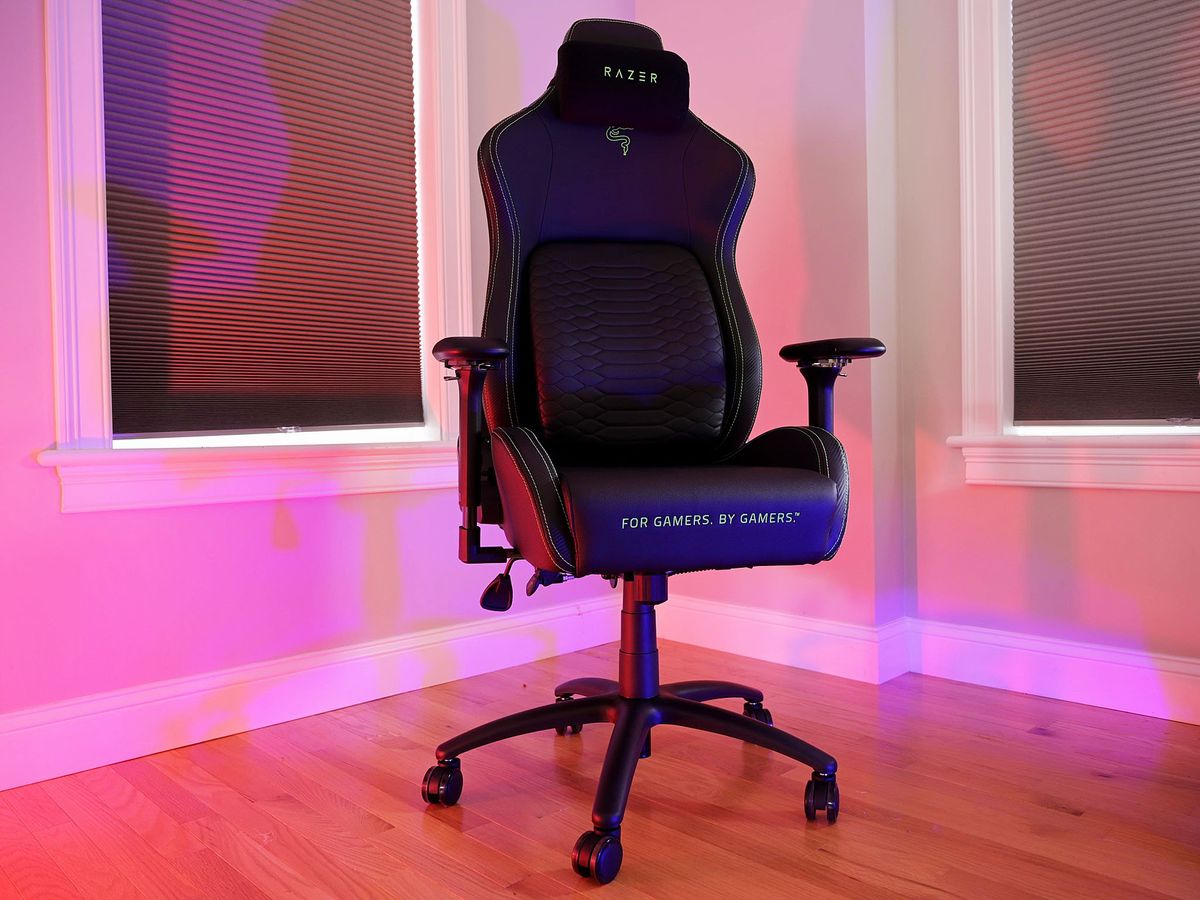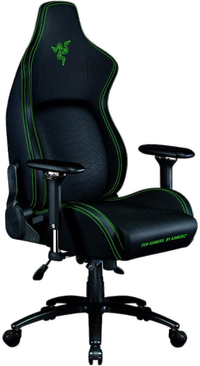Many years ago, I worked as a polysomnographer to help diagnose people with medical sleeping issues. When buying a bed, I would tell my patients don't be cheap and buy a high-quality bed. The reason? You spend 1/3 of your life sleeping — don't screw it up.
The same advice goes towards chairs depending on how much time you sit in front of a computer. For competitive gamers, hobbyists, developers, or anyone who spends hours sitting, you'll want something comfortable and gives you good form.
The Iskur is Razer's answer to the often dull and repetitive "gaming chair" business, replete with clones and "me too" designs. Its secret is the best lumbar support I have experienced in any chair combined with top quality design and stitching.
All of that begs the question — can a gaming chair be worth $500? The answer is a resounding yes.
Bottom line: This is no rip-off gaming chair. Razer has made one of the highest-quality and comfortable PC chairs on the market. Its adjustable lumbar support gives you a neutral position for gaming or typing that no other seat can match. While it's pricey, your back will be thankful.
Neutral is best
Razer Iskur Gaming Chair: What I like
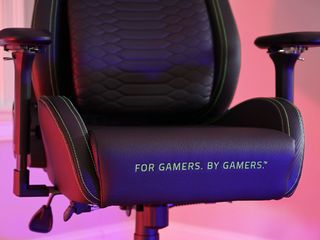
The setup of Iskur is straightforward. Razer does an excellent job of using premium packaging to ensure nothing is damaged during transit (the package is 84lbs, for those curious). When you open the box, a giant welcome card greets you signed by Razer CEO Min-Liang Tan. It's the kind of presentation you expect from a gaming chair that costs twice as much as the competition.
The directions were easy to follow, and the entire setup took 30 minutes (longer if you include unpacking and clean up). There is just one tool needed — a hex driver — which is included. One person can assemble it, but it wouldn't hurt to have help when attaching the wheeled base. The total weight of the chair is around 66 pounds (30kgs). Razer has a handy setup tutorial video to guide you through the process.


Like other gaming chairs, the Iskur uses multi-layered synthetic leather, but it's notably higher quality, as evidenced by the excellent Razer-green stitching throughout. The armrests are plastic, but they have polished metal buttons for adjustments, which is pleasant. The head pillow is made with memory foam and has a soft, plush velvet-like liner with Razer emblazoned on it. On the front of the seat, the famous Razer inscription "For gamers. By gamers." is stitched in green.
The Iskur supports up to up to a 299 pound (136kgs) weight limit for those up to 6'2." The seating area is angled like other gaming chairs along with padded side padded guards.




I've reviewed a few gaming chairs over the years, most recently one from EWin, which is what I've been using since. I've soured on doing more reviews simply because these chairs are all a riff on the same tune: take a racing-style cockpit chair, change the color, move a pillow around and sell it for $200.
The Iskur is the first gaming chair that goes way beyond that. Sure, it's still a racing-style chair and a familiar design that gamers will enjoy, but the lumbar support system is unparalleled. Razer's rationale here is clear: when you sit for hours in most gaming chairs, you end up rounding our shoulders and hunching over. The little lumbar pillow helps, but it's still relatively small.
Razer built Iskur from the ground up to do something different. Its lumbar pad, made with cross-stitched synthetic leather, uses the same pulley system to adjust the chair angle and height. By pressing a lever, the "fully sculpted lumbar support" pops out (up to 26 degrees), letting you set how much backing you prefer. You adjust it using a lever on the right-hand side. There is also a lever for front/back tilting of the backrest and height-adjustment for the five-wheeled base.
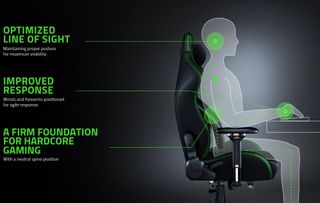
When combined with the memory foam neck pillow and 4D armrests (which move in all dimensions including height, side-to-side, forward/back, rotate in/out), you can put your body into a neutral position with your shoulders back and spine not hunched. It works remarkably well. As I'm typing this, I feel like someone is cradling me, hitting all the right support points (head, elbows, and lower back), meaning all my muscle movement is just in my fingers instead of my body holding itself up. For the first time, I don't feel like I'm ruining my posture by sitting.
Overall, Iskur's quality, look, and feel are just miles ahead of the latest Amazon generic gaming chair brand.
Let's nitpick
Razer Iskur Gaming Chair: What I don't like
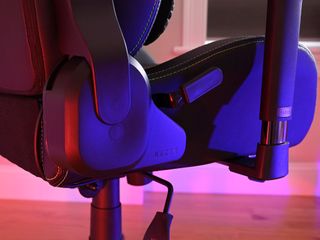
There is nothing that stood out about this chair that I found off-putting. The bottom seat cushion is a tad stiffer than some other chairs, but this is still the breaking-in period. Plus, I think it is better to have a firm seat to begin with than a soft one that will likely get very mushy after years of abuse. It is a chair meant for work (or gaming), not for taking a nap.
If you want the best (and healthiest) gaming chair around, the Iskur is it.
I also found the ability to tilt to be a little bit stiff, not letting me rock as freely as other chairs.
Let's talk about the price. $500 is a big deal, especially when you can find other decent gaming chairs for $190. But this is Razer's MO, and that cost usually results in higher quality or doing something unique. The Iskur does both. You don't need to be a furniture guy to see how the quality of the materials here, the stitching, the design are all at a higher level. And that price is not that absurd, either. The highly acclaimed Secretlab Titan, which has comparatively little lumbar support, starts at $460. And office-grade ergo chairs often run at $1,000 or higher. They don't even have green stitching. Pfft.


Razer does offer a three-year warranty covering defective parts and components but not wear and tear. That's not bad, but the Secretlab, as mentioned above, offers a preferable five years.
Another forgivable nitpick is there are no custom covers for eSports or specific games. Seeing as this is Razer's first foray into gaming chairs, that's understandable, and I won't be surprised if that feature comes later if sales are good.
It's pretty great
Verdict: Should you buy the Razer Iskur?
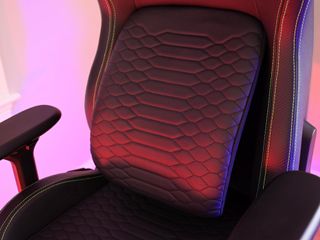
The first question about buying the Iskur is can you afford it? If you can, then I say go for it. That Secretlabs Titan is $460, but for $40 more, you are getting much better lumbar and posture support with the Iskur.
The Iskur is Razer's answer to the often dull and repetitive "gaming chair" business.
Even if you cannot afford it right now, I suggest you try to set a goal for yourself, especially if you do sit for hours at a time. At the end of the day, when you stand up, you're back, and joints won't be creaking, and you'll feel so much better.
I think for its first-gen chair, Razer did an excellent job. It'll be interesting to see how it holds up over the next few years (something I'll revisit in future reviews), but so far, nothing has me worried. Razer has done extensive wear-n-tear testing, including corrosion (salt fog), abrasion wear, coating adhesion, drop and stability tests, and more.
Finally, of course, it would be cool if Razer found a way to integrate some Chroma RGB or its famed HyperSense force feedback technology into this chair. Something tells me the company may have plans for that someday. But for now, if you want the best (and healthiest) gaming chair around, the Iskur is it.
This gaming chair focuses on perfecting your posture so you can play games for longer. It has a firm cushion, adjustable lumbar support, and a memory foam headrest to ensure perfect posture.

Daniel Rubino is the Editor-in-chief of Windows Central. He is also the head reviewer, podcast co-host, and analyst. He has been covering Microsoft since 2007 when this site was called WMExperts (and later Windows Phone Central). His interests include Windows, laptops, next-gen computing, and wearable tech. He has reviewed laptops for over 10 years and is particularly fond of 2-in-1 convertibles, Arm64 processors, new form factors, and thin-and-light PCs. Before all this tech stuff, he worked on a Ph.D. in linguistics, performed polysomnographs in NYC, and was a motion-picture operator for 17 years.
